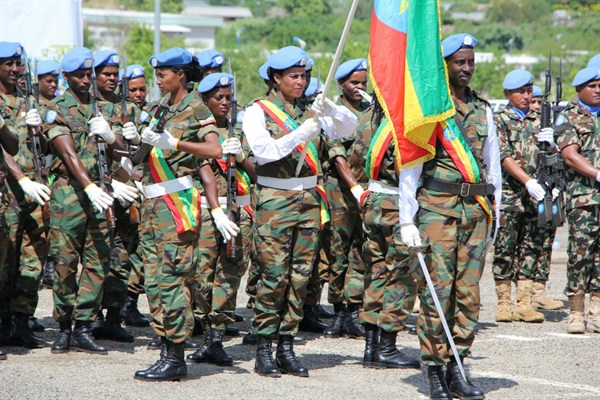For years, Ethiopia has been actively engaged in the civil war in neighboring South Sudan, providing troops and diplomatic support to help stabilize the ravaged country. But Ethiopia’s relations with Sudan, which South Sudan broke away from in 2011, go far deeper and have not always been amicable. In an email interview, Terrence Lyons, associate professor of international relations at George Mason University and research associate at the Brookings Institution, discusses the roots of the relationship, how South Sudan’s independence and subsequent civil war have complicated Ethiopia’s foreign policy, and what other regional issues Ethiopia, Sudan and South Sudan must all navigate.
WPR: Describe the historical relationship between Ethiopia and Sudan. How did it fair when South Sudan formally split from Sudan in 2011?
Terrence Lyons: Ethiopia and Sudan have had long and often contentious relations with one another. Both went through their own processes of state-making, with the period of the Mahdi state in Sudan and the expansion of the Ethiopian state under Emperor Menelik II both taking place in the 19th century. In the late 20th century, Ethiopia and Sudan often supported each other’s rebel movements. Khartoum backed the Eritrean People’s Liberation Front and the Tigray People’s Liberation Front, and Addis Ababa assisted the Sudan People’s Liberation Movement. Ethiopia formed part of a loose alliance of neighboring states that worked to contain the National Islamic Front regime in Sudan in the 1990s, but relations improved after the border war between Ethiopia and Eritrea from 1998 to 2000, as Ethiopia reached out to manage regional threats.

